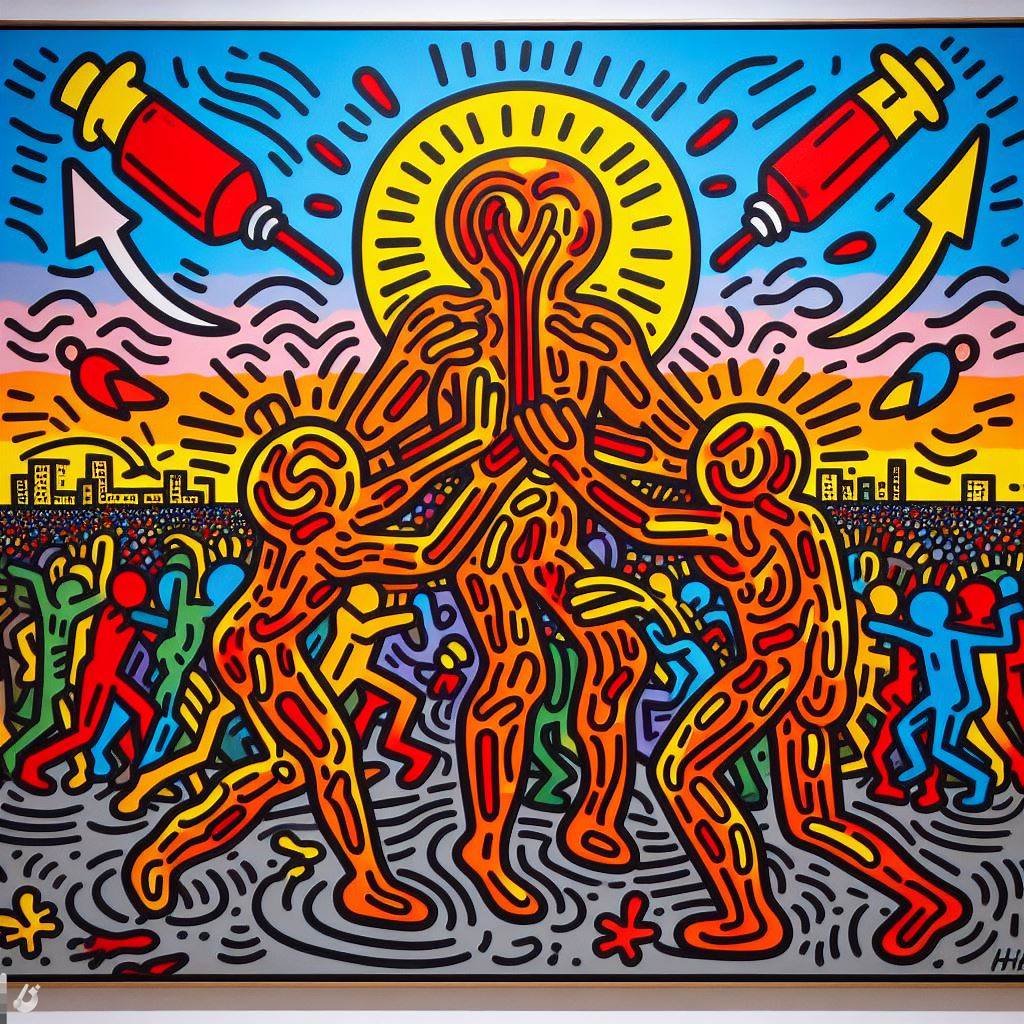
Renowned artist Keith Haring's "Unfinished Painting," originally created as a powerful social commentary on the AIDS crisis, recently became the center of a heated online debate after a social media user employed artificial intelligence (AI) to "complete" the piece.
Haring, who succumbed to AIDS-related complications in 1990 at the age of 31, left behind an almost entirely white canvas with colorful figures in his signature style in the right corner. Streaks of paint also adorned the piece.
The controversy ignited when a user named Donnel utilized AI to fill the original white space with similar purple and white figures. The post went viral, with Donnel expressing, "Now using AI we can complete what he couldn’t finish!"
The backlash was swift, as artists and online users argued that using AI to complete a late artist's work is unethical. Artist Megan Ruiz criticized Donnel's rendition as "vile," echoing concerns about consent, plagiarism, and compensation in the realm of art and AI.
Generative AI, accessible through platforms like OpenAI's ChatGPT and Microsoft's Bing AI Chat, has enabled the creation of sophisticated images and texts. However, artists like Ruiz voice concerns about models being trained on stolen work, raising questions about the ethical use of AI in the art domain.
Some online reactions on platforms like Reddit characterized AI art as "vile" and "disgusting," asserting that AI lacks the essence of true artistic expression. Critics pointed out that the AI failed to replicate Haring's unique cartoon style, labeling its work as "poor."
Accusations of homophobia and being "tone deaf" were also leveled against Donnel, who, in response to an interview request, claimed the post was intended as a joke while opting to remain anonymous due to fears of personal information leakage.
The Keith Haring Foundation, responsible for overseeing Haring's intellectual property, has not yet commented on the controversy.
While experts suggest Donnel may not have violated legal boundaries, the ethical implications of using AI to alter an artist's work, particularly one with a significant social context, are widely debated. Tina Tallon, an assistant professor of AI and the arts at the University of Florida, emphasized the need for education to promote ethical AI use, calling for structures that respect artists and their agency over their creative work, whether living or dead.